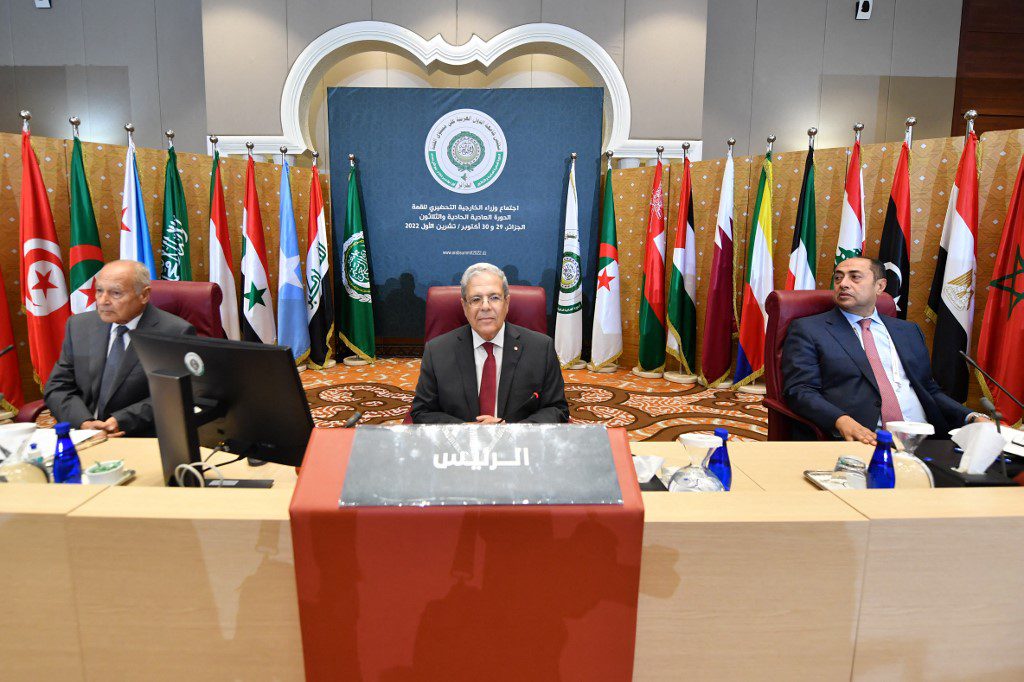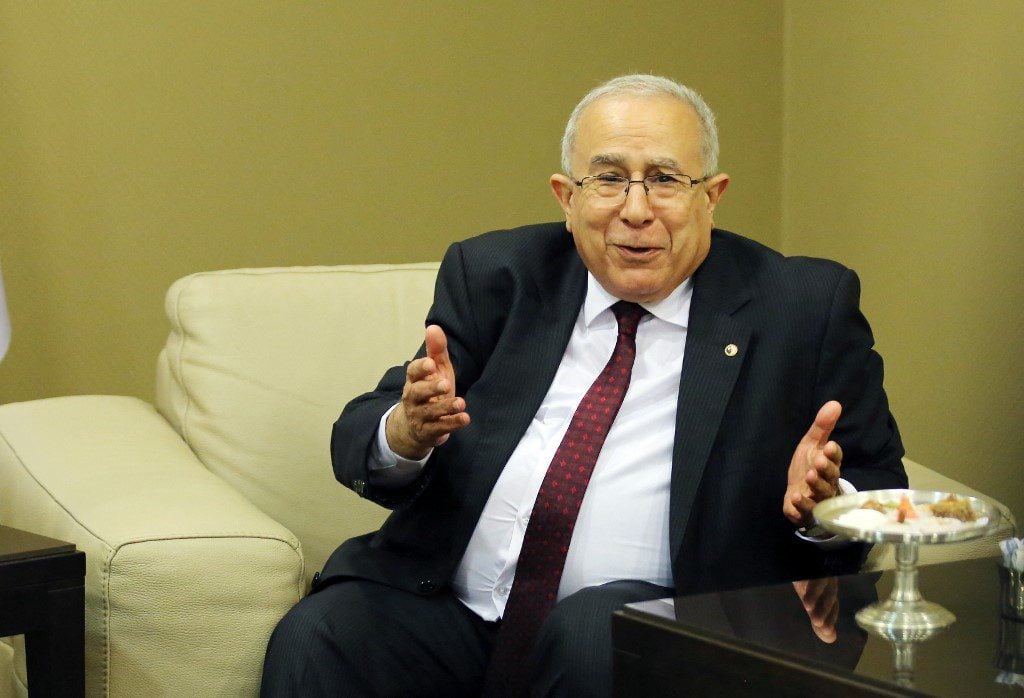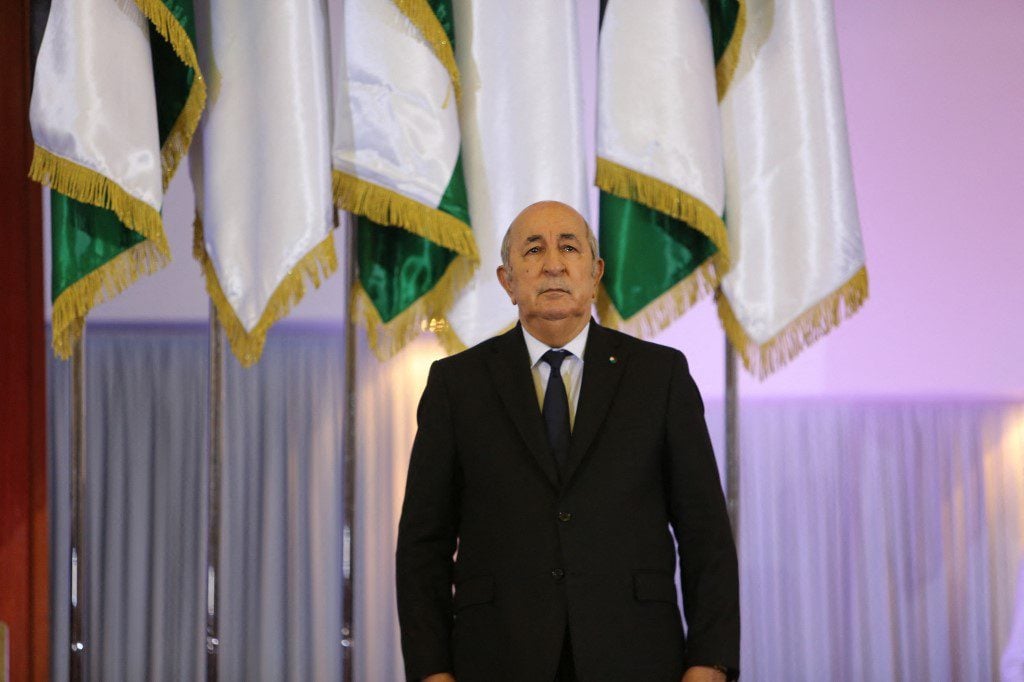
Khaled Mahmoud
Algeria is mobilising all its political, diplomatic and security forces to ensure the success of the 31st Arab Summit on the 1st and 2nd of November 2022. Algeria opted to host the summit while celebrating the anniversary of its revolution against French colonialism in 1954, a very symbolic choice.
As with previous Arab Summits, there is uncertainty about the level of attendance. At the same time, the average Arab citizen hopes the summit will not revolve around speeches, settling scores, or networking.
The Arab summit was supposed to take place in Algeria in March 2022. However, Algerian President Abdelmadjid Tebboune decided to postpone organising this event due to the widespread Corona pandemic.
Observers see Algeria’s insistence on hosting the Arab summit as political gain that Tebboune will use to support his presidential campaign when he runs for a second term in 2024.
Unofficial reports noted that Tebboune’s supporters are launching a propaganda campaign in preparation for his second term. This campaign coincides with Tebboune controlling the country’s affairs to fight leaks concerning high state officials’ meetings, and appointments and dismissals prior to official announcements.
Algeria’s communication regarding the summit is in line with the traditional messages surrounding former summits; the pre-summit discourse is exaggerated, and expected outcomes are inflated. This trend reflects Algeria’s desire to use the summit domestically for support and to consolidate power.
Tebboune is counting on the success of the upcoming summit to provide external benefits, as it comes at a time when he is reshaping his country’s foreign policy.
This was reflected in the statements of Algerian Foreign Minister Ramtane Lamamra during the recent consultation meeting of Arab foreign ministers in New York. At the meeting, Lamamra stressed Algeria’s efforts to “complete the preparation for a successful Arab Summit that will unify the word of Arab states, strengthen their position in international fora and enhance their contribution to addressing today’s global challenges.”
Addressing the United Nations, Lamamra looked forward to the upcoming summit as “a milestone in the process of joint Arab action” to ensure “a more effective contribution of the Arab world in addressing the current challenges on regional and international fronts.”
Hossam Zaki, the assistant secretary general of the Arab League, admired the considerable security and logistical preparations that Tebboune provided for the summit. Zaki showed gratitude for the Algerian efforts and keenness to ensure the summit’s success.
Some think that Algeria’s interest in organising the summit is to ensure the summit’s success. Others criticised the scale of Algeria’s efforts to organise the summit.
From Morocco’s point of view, Algeria “exaggerated the role and scale of the Arab summit to gain temporary media dominance, regionally and domestically.” Algerian writer Taoufik Rabahi called for the Arab summit to be abandoned since it “is not the best way for Algeria to regain diplomatic dominance and to be heard.”
Algeria has chosen “unity, reunification and rejection of division” as the title of the upcoming Arab Summit. Of course, this title carries a comic connotation that cannot be overlooked regardless of the traditional talk accompanying the Arab summits. Algeria is organising the upcoming summit while diplomatically boycotting its neighbour Morocco.
Ironically, the summit, intended to resolve Arab differences rather than fuel them, is being held in an environment hostile to Morocco.
Morocco’s Absence

Despite media speculation about Moroccan King Mohammed VI’s participation in the Algiers summit, he did not personally receive the invitation. The Moroccan monarch left the reception of Algerian envoy Abderrachid Tebbi, who visited Morocco to extend an invitation to attend the upcoming Arab summit, to Foreign Affairs Minister Nasser Bourita.
A statement issued by the Moroccan Foreign Ministry merely mentioned the invitation without clarifying whether or not the Moroccan king would attend the summit.
Since the 1960s, Morocco and Algeria have been in a tug of war. Algeria has been sheltering the Polisario Front and supporting its demands for the secession of the territory of Western Sahara from Morocco since 1976.
On the other hand, Morocco considers Western Sahara an integral part of its territory and proposes to grant it autonomy under its sovereignty as the sole solution to the conflict. On 24 August 2021, Algeria announced it had severed diplomatic relations with Morocco because it “has never stopped taking unfriendly actions” against Algeria.
Disagreements and Conflicts
The closing statement of the last summit in Tunisia declared that “what unites Arab countries and peoples is much more than what divides.” However, the same statement acknowledged that “the persistence of differences and conflicts in the region has depleted the Arab potential.”
The statement described the current Arab situation as “unacceptable” because it has turned the Arab region into “arenas for international and regional conflicts, sectarian conflicts, and sanctuaries for terrorist organisations that threaten security, stability and development.”
This comes at a time when the organisation process of the Arab summit has become a target of ridicule, sorrow and conflict on social media. In 2012, Iraqis joked about the Arab summit in Baghdad. They pleaded to Allah to “remove this ‘plummet’ (summit) from their nation.” The measures to provide security for the summit in Iraq paralysed daily life in Baghdad.
According to Dr Ahmed Youssef, the Arab regimes have faced an existential crisis ever since the Islamist movements – that accompanied the “Arab Spring” – rose at the expense of Arab nationalism.
A study by the CSRGULF recorded an increase in the number of disputes between Arab countries, totalling over 30 direct and indirect disputes. According to the study, this contributed to “reducing the trust between regimes and increasing vigilance.” It also led to “a further decline in achieving joint Arab integration under the umbrella of the Arab League or regional integration at the level of Maghreb and Gulf blocs.”
Some noted that “the Arab summits have been intermittent and lacked seriousness in holding them at the required level,” pointing out that “the effectiveness of the decisions of the Arab summits has not met the aspirations of the Arab people.”
Another opinion is that the problem lies not in organising the Arab summits but in “the effectiveness of what it can produce under the current miserable conditions.”
Rushing to Israel
An analysis by The Washington Institute notes that “nearly one-third of Arab states have now chosen for peace with Israel.” According to the study, this means the end of one of the Arab and regional taboos. However, Algeria still rejects any move towards rapprochement with Tel Aviv.
President Tebboune used the recent visit of the US secretary of state to Algeria to reflect on this issue. At the press conference on the sidelines of this visit, the Algerian president explained his country’s position regarding Israel and the Palestinian cause.
Tebboune reiterated Algeria’s support for the Arab League’s decision to reach peace with Israel and for Israel to recognise the State of Palestine. In response to the US attempts to promote normalisation, he said, “We have nothing against them. The only concern we have is Palestine and nothing else at all.”
Later, President Tebboune said Algeria would neither support nor participate in the rush towards normalisation. The Algerian president considered “the Palestinian cause fundamental for his nation,” stressing that Algeria does not accept colonialism and that “Palestine is for the Palestinians, not for anyone else.”
Despite recent verbal skirmishes between Algeria and Israel, Algeria remains the only Maghreb country that has yet to have public relations with Israel, unlike Tunisia, Morocco and Mauritania.
The Palestinian Dialogue

Algeria’s desire to reconcile the Palestinian factions was confronted with the nature of the historical and traditional disputes over leadership and influence between Fatah and Hamas.
Fatah criticised Hamas in a statement called “Hamas Leaders tweeting out of the national flock” after Hamas described Mahmoud Abbas’ speech before the UN General Assembly as “begging” and “doing nothing new.”
Despite Algeria’s recent efforts, Fatah considered Hamas’ stance as an obstacle to national unity in the Palestinian sphere.
Recently, Algeria hosted a meeting to end the Palestinian rift. While the gathered Palestinians agreed upon carrying out presidential and legislative elections, the lack of trust between Fatah and Hamas might render the Algerian diplomatic efforts for Palestinian reconciliation futile.
Algeria seeks to place the Palestinian cause “atop the Arab League priorities and form a unified stance that supports Palestinian rights through activating an Arab Peace Initiative,” according to the summit’s official website.
The problem here is not linked to the Algerian mediation but to the Palestinians’ internal disputes that have been entrenched for decades. Given that all previous Arab and international attempts failed to mend the Palestinian rift, the Algerian negotiator might want to lower his expectation.
Digital Summit
Algeria wants this summit to be “paperless,” thus setting a precedent for the Arab League.
Algeria, which says it has made significant strides in digital transformation and the use of information and communication technologies, declared its keenness to provide all necessary conditions for the 2022 Algeria Summit to be the first “paperless” Arab summit.
The fourth summit hosted by Algeria will have speeches limited to the participating leaders. It will also have no fixed agenda.
Apart from the “digitalisation” of the Algeria summit, its departure from the frustrating pace of previous summits is paramount because the Arab streets have come to lose interest in the summits as they no longer produce tangible changes to bridge the differences between Arabs.


